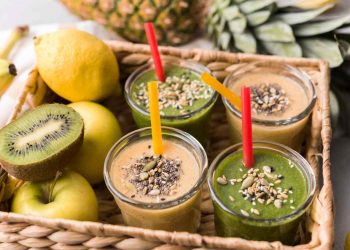Are you one of those people who toss and turn at night, staring at the ceiling while counting sheep in vain? You’re definitely not alone. According to the CDC, around one in three adults don’t get enough sleep. This lack of shut-eye can lead to a myriad of health issues, from increased stress to a weakened immune system. So, what can you do to improve your sleep naturally? Let’s dive into five remedies, with a special spotlight on valerian root, a popular herbal choice for better sleep.
Contents
What is Valerian Root?
Valerian root is derived from the Valeriana officinalis plant, which has been used for centuries in traditional medicine, particularly in Europe and Asia. People have turned to this herb primarily for its sedative properties, hoping to find relief from insomnia and anxiety. But does it really work? And are there other natural remedies that can help you drift off more easily?
The Science Behind Valerian Root
Valerian root is thought to increase levels of gamma-aminobutyric acid (GABA) in the brain, a neurotransmitter that promotes relaxation and reduces anxiety. Some studies suggest that valerian root may help decrease the time it takes to fall asleep and improve sleep quality. For example, a review published in the journal Sleep Medicine found that valerian root could indeed aid sleep, particularly when combined with other herbs.
However, it’s important to note that while some people swear by valerian root, others may not experience the same benefits. Individual responses can vary, and more research is needed to fully understand its efficacy.
Pros and Cons of Valerian Root
Pros:
- Natural Option: As a herbal remedy, valerian root is a natural alternative to over-the-counter sleep medications.
- Minimal Side Effects: For most people, valerian root is well-tolerated, with few side effects, such as mild headaches or digestive issues.
- Potentially Effective: Some studies show it can help improve sleep quality and reduce the time it takes to fall asleep.
Cons:
- Variable Results: Not everyone experiences the same benefits, and some may find it ineffective.
- Not for Everyone: Pregnant or nursing women, as well as those with certain medical conditions, should consult a healthcare provider before use.
- Interactions with Medications: Valerian root can interact with certain medications, including sedatives and antidepressants.
How to Use Valerian Root
Valerian root is available in various forms, including capsules, teas, and tinctures. If you’re considering trying it, here are some tips:
- Dosage: The recommended dosage can vary, but many studies suggest 300-600 mg of valerian root extract taken 30 minutes to two hours before bedtime.
- Preparation: If you opt for valerian tea, steep 2-3 grams of dried root in hot water for about 10-15 minutes.
- Consistency: Like many natural remedies, valerian root may take a few days to a week to show noticeable effects, so give it some time.
4 More Natural Remedies for Better Sleep
While valerian root is a fantastic option, it’s not the only player in the game. Here are four more natural remedies to consider for better sleep.
1. Lavender
What it is: Lavender is a fragrant herb known for its calming properties.
How it helps: Research has shown that lavender can reduce anxiety and improve sleep quality. A study published in the journal Journal of Alternative and Complementary Medicine found that inhaling lavender essential oil before bedtime significantly improved sleep quality among participants.
How to use it: You can use lavender essential oil in a diffuser, add it to your bath, or even sprinkle dried lavender on your pillow.
Pros and Cons:
- Pros: Natural, pleasant aroma, and versatile in use.
- Cons: Some may find the scent overwhelming or irritating.
2. Chamomile
What it is: Chamomile is a flowering plant often consumed as tea.
How it helps: Chamomile has been traditionally used for its calming effects. A study published in Phytotherapy Research found that chamomile extract significantly improved sleep quality in individuals with insomnia.
How to use it: Brew a cup of chamomile tea about 30 minutes before bed.
Pros and Cons:
- Pros: Generally safe for most people and widely available.
- Cons: May cause allergic reactions in those sensitive to plants in the daisy family.
3. Magnesium
What it is: Magnesium is a mineral essential for many bodily functions, including sleep regulation.
How it helps: Magnesium can help relax muscles and calm the nervous system. A study published in The Journal of Research in Medical Sciences found that magnesium supplementation improved sleep quality in elderly participants.
How to use it: You can take magnesium supplements or consume magnesium-rich foods like nuts, seeds, and leafy greens.
Pros and Cons:
- Pros: Supports overall health in addition to sleep.
- Cons: High doses can cause digestive issues.
4. Melatonin
What it is: Melatonin is a hormone that regulates the sleep-wake cycle.
How it helps: Melatonin supplements can be particularly useful for people with disrupted sleep patterns, such as shift workers or travelers experiencing jet lag. A review in Journal of Sleep Research found that melatonin can reduce the time it takes to fall asleep and improve sleep quality.
How to use it: Melatonin is available in various forms, including tablets and gummies. The typical dosage ranges from 0.5 to 5 mg taken about 30-60 minutes before bedtime.
Pros and Cons:
- Pros: Can be effective for short-term sleep issues and jet lag.
- Cons: Long-term use may disrupt natural hormone production.
FAQs About Natural Sleep Remedies
Q1: How long does it take for valerian root to work?
A1: Many users report noticeable effects within a week, but it can vary from person to person.
Q2: Can I combine valerian root with other sleep aids?
A2: It’s best to consult a healthcare provider before combining valerian root with other supplements or medications.
Q3: Are there any side effects of using chamomile?
A3: While generally safe, some individuals may experience allergic reactions, particularly if they are sensitive to plants in the daisy family.
Q4: How can I create a better sleep environment?
A4: Consider reducing noise, keeping your room dark, and maintaining a cool temperature to enhance your sleep quality.
Conclusion
Finding the right remedy for better sleep can be a journey of trial and error. Valerian root, along with other natural options like lavender, chamomile, magnesium, and melatonin, can offer some relief for those restless nights. It’s essential to remember that what works for one person may not work for another. Always consider consulting with a healthcare professional before starting any new remedy, especially if you have existing health conditions or are taking medications.
As you explore these natural solutions, keep in mind that lifestyle factors—like reducing screen time before bed, maintaining a consistent sleep schedule, and managing stress—also play a crucial role in achieving quality sleep.
This article is for educational purposes only and is not a substitute for professional medical advice. Always consult a qualified healthcare provider before making changes to your health routine.
References
-
Ernst, E. (2006). Valerian: A systematic review of its efficacy. Sleep Medicine, 7(5), 391-396. https://doi.org/10.1016/j.sleep.2006.02.006
-
Koulivand, P. H., Ghadiri, M. K., & Gorji, A. (2013). Lavender and the Nervous System. Journal of Alternative and Complementary Medicine, 19(2), 154-158. https://doi.org/10.1089/acm.2012.0072
-
Watanabe, A., & Saito, Y. (2017). Effects of Chamomile on Sleep Quality: A Systematic Review. Phytotherapy Research, 31(11), 1627-1634. https://doi.org/10.1002/ptr.5904
-
Wurtman, R. J., & Wurtman, J. J. (2015). The Role of Melatonin in the Treatment of Sleep Disorders. Journal of Sleep Research, 24(6), 659-661. https://doi.org/10.1111/jsr.12320
Get Your FREE Natural Health Guide!
Subscribe now and receive our exclusive ebook packed with natural health tips, practical wellness advice, and easy lifestyle changes — delivered straight to your inbox.















